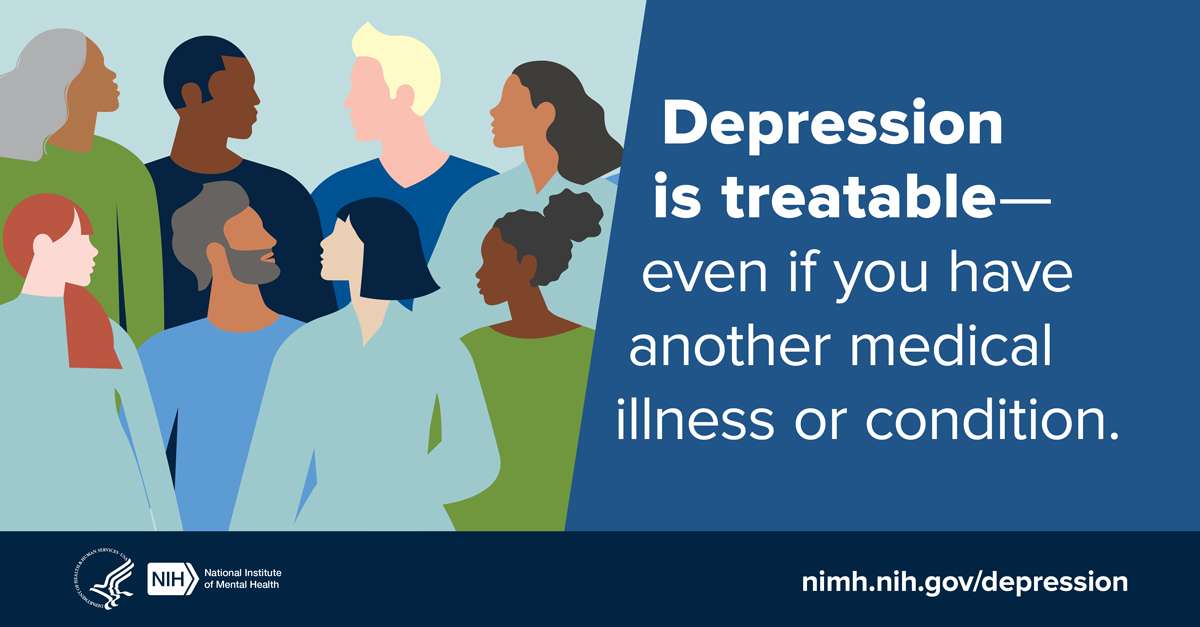![]()
Verywell / JR Bee
Psychology degree options can include those at the undergraduate and graduate levels. The five main types of degrees are an associate degree, a bachelor’s degree, a master’s degree, a PhD, and a PsyD. A psychology degree can help prepare students for careers in various fields, including mental health, education, counseling, research, and applied fields.
For students thinking about earning a psychology degree, it’s important to understand what level of education they will need to enter their chosen career path. For some professions, a bachelor’s degree might be sufficient. Other career paths might require some type of graduate degree.
Here are the types of psychology degrees, how long each one takes to earn, and the career options available at each degree level.
Psychology is one of the most popular degrees at university and college. A common question prospective students have is “How long does it take to get a psychology degree?” Let’s answer this and also explore the requirements for earning a psychology degree and becoming a psychologist.
A Psychology bachelor degree takes four years to complete as a full-time student. Another psychology degree is a Master’s in Psychology, which takes one to two years to get. Doctor of Psychology (PsyD) and PhD in Psychology degrees are both four years long or more.
Psychology DegreeFull-Time Duration*Associate Degree2 yearsBachelor of Psychology3-4 yearsMaster of Psychology1-2 yearsPsyD or PhD in Psychology4+ years
*General guide only. Country and program variations exist. Students may take longer.
When contemplating the duration of psychology studies, you should consider more than just the length of an undergraduate degree. To actually work as a psychologist, higher qualifications are essential.
If you want to work as an assistant psychologist, school psychologist, industrial psychologist, psychology researcher, or community college teacher, you’ll generally need a master’s degree.
To become a licensed psychologist and treat clients or patients, a doctoral degree in clinical psychology is required.
Psychology Degrees and How Long They Take
Associate degree: 2 years
Associate degrees in psychology normally require 2 years of coursework if you study full-time. The degree you earn is typically an Associate of Arts (AA) in Psychology, though Associate of Science (AS) degrees with a major in Psychology may also be available.
Bachelor degree: 3-4 years
The standard duration for a Bachelor of Psychology, Bachelor of Science (Psychology), or equivalent degree is 4 years. But that time might vary depending on your location. Some colleges outside the US let you complete a degree in just three years.
For example, the University of California, Irvine, offers four-year psychology degrees in both the arts and science bachelor programs. In contrast, the University of Melbourne programs take three years, plus an extra year if you do an honours degree.
Master’s degree: 1-2 years
If you choose to attend a master’s program, expect another one to two years. For instance, the Master of Arts in Psychology at Boston University runs for one year, focusing on psychological theory and research. Comparably, the University of Pittsburgh offers a two-year master’s degree: Master of Science in Applied Developmental Psychology.
PsyD or PhD in Clinical Psychology: 4+ years
A Doctor of Psychology (PsyD) degree or PhD in Clinical Psychology will qualify you to work as a licensed psychologist. The minimum length is generally considered to be four years, with most students completing their psychology doctorate over 4-6 years.
Variability in the time it takes for a doctorate can come from a long dissertation or thesis project and write-up. Some doctoral candidates are highly efficient and do this quickly while others find the task more challenging and can take years longer.
What Can I Do With a Bachelor’s Degree in Psychology?
While you generally need a doctorate degree to work as a psychologist, you can still put a bachelor’s degree to good use. A Bachelor of Psychology or equivalent degree is a generalist qualification that allows you to compete for many professional jobs. You’re also eligible for graduate degree programs in fields such as counselling, social work and education.
Even without having to attend graduate school, careers you may consider with an associate’s degree or bachelor’s degree in psychology include:
- case manager in social and human service fields
- communications or public relations specialist
- human resources manager
- probation and parole officer or corrections case manager
- sales or customer service representative.
How Much Does it Cost to Become a Psychologist?
In terms of tuition fees, the cost to become a psychologist in the United States is estimated to be $72,000 over 8 years. That’s if you study at college or university in your state that has average fees by national standards. For an out-of-state education, the cost is estimated to be $180,000.
To calculate the cost to become a psychologist, you multiple the annual tuition fee by the number of years for bachelor’s and master’s degrees. Becoming a psychologist essentially takes a minimum of 4 years of undergraduate study and 4 years of postgraduate study. The $72,000 figure is based on 4 x $7,385 for an in-state bachelor’s degree in psychology and 4 x $10,625 for an in-state PhD in Psychology. Annual tuition fees statistics come from College Tuition Compare.
Of course, the costs may be much higher if you study at one of the more expensive colleges or universities. Additionally, we haven’t accounted for the opportunity cost of your education. While many college graduates in their mid-20s are able to work and save money, graduate psychology students will still be studying. Many graduate psychology students work part-time as well, though this can extend education timeframes.
Do Some Psychology Specialties Take Longer?

Clinical psychology has among the longest qualifying periods of all psychology degrees. Despite this, some psychology specialties could take longer to complete or require a comparable time commitment. For example, counselling psychologists typically train for a minimum of eight years and, like clinical psychologists, they can require longer to become fully qualified.
Also, consider that each student may progress through a program at their own pace. Many students are working in the field while earning advanced degrees. It’s worth considering these responsibilities and limitations in determining the potential duration of a psychology degree program.
Certain psychology specialties may take less time to complete. For instance, while forensic psychologists also train for a minimum of eight years, they may only require one year of post-degree supervised work – which is less than needed for clinical psychologists.
Additionally, school psychologists and industrial/organisational psychologists experience a shorter qualifying duration of six to seven years. Most school psychologists, for example, hold an Education Specialist (Ed.S.) degree, a 3-year post-master’s degree that is less intensive than a doctorate.
Psychology Degree Requirements
Psychology degrees provide broad instruction in natural and life sciences as well as humanities and social sciences. As a result, the field of psychology admits candidates from diverse academic and professional backgrounds, which is reflected in typical degree program requirements.
Bachelor’s degree in psychology requirements
While institutional conditions for entry vary, candidates are typically expected to demonstrate both sciences and humanities aptitude. Undergraduate programs commonly expect solid A level results in a mix of subjects, including biology, chemistry, psychology, anthropology, philosophy, and sociology.
Master’s program entry requirements
Candidates pursuing a master’s degree in psychology will typically possess an undergraduate psychology qualification. However, it is common to see enrolled students from diverse backgrounds in arts, humanities, and sciences.
Doctor of Psychology (PsyD) or PhD in Psychology
For a Doctor of Psychology degree or PhD in Psychology, entry requirements depend on the type of program. The American Psychological Association recognizes three different categories of doctorate degrees: clinical, counselling, and school psychology.
Both [the PsyD and PhD in Psychology] satisfy the requirements for full authority licensure and neither limits you from clinical practice or research work, but the training in a PhD is a bit more traditionally oriented to academia while the PsyD focuses more narrowly on clinical practice.
Careers in Psychology
Generally, however, you should have an undergraduate degree with in-depth psychology training that includes statistics, laboratory experience, and research methods. A master’s degree is often not essential, and even an undergraduate major in Psychology may be unnecessary if you’ve completed all prerequisite courses. The minimum grade point average (GPA) is typically 3.0, though competition for places can push this up.
Can You Save Time with Online Psychology Programs?

Online psychology degree programs provide an alternative for candidates who cannot afford the time commitments of an in-person program. However, an online program can also be a faster alternative to in-person courses due to the flexible learning they provide.
Online courses eliminate lengthy commute times, and candidates do not have to feel limited because of a busy schedule. The flexibility of an online course also frees candidates to work at their own pace and potentially take more classes at convenient times. You might also explore the possibility of accelerated online programs to fast track your route to qualification.
That’s not to say online courses are less demanding than in-person classes. You are required to complete the same number of credit hours as students in physical programs.
Ultimately, there are multiple career options open as you plan for a career in psychology, both at the undergraduate and advanced level, with varying timeframes involved. Considering the variable nature of these degrees, the best approach may be to determine your ideal career path and then plan accordingly.
How Long Does It Take to Become a Clinical Psychologist?

Becoming a licenced clinical psychologist takes around 10 years in the United States, which includes one to two years of applied training and licensing.
Clinical psychologists must be licenced with industry bodies such as the American Psychological Association or the Psychology Board of Australia. Obtaining a license requires a PhD in Psychology (PhD) or a Doctor of Psychology (PsyD). Gaining this qualification can require four to six years of full-time study.
Here’s a look at the timeframes for become a licensed clinical psychologist:
- Completing a bachelor’s degree takes four years
- A master’s in psychology (sometimes optional) runs for one to two years
- For a doctorate, programs typically take four to six years
- Postgraduate training and licencing require between one to two years
Overall, your pathway to licenced practice is likely to include 8+ years of university-level education. To minimize the time, you can enter a PhD program after a psychology bachelor’s degree. You may also apply for a master’s program embedded within a clinical psychology doctorate program, such as the Clinical Psychology Master of Arts (MA) at Northwestern University Feinberg School of Medicine.
Graduates are able to maintain a psychology practice where they consult with and treat people experiencing mental health problems.
How to Become a Psychologist in Australia

The Psychology Board of Australia (PsyBA) sets the requirements to become a psychologist in Australia. An accredited master’s degree is suitable, meaning not all registered psychologists in Australia have a doctorate degree.
Under the requirements, aspirants face a minimum six-year sequence before becoming eligible for general registration as a licenced psychologist. The duration is potentially longer for candidates who wish to become qualified in a psychology specialty, referred to as an area of practice endorsement by the PsyBA.
The available pathways to general or area of practise endorsement in Australia are as follows:
- Three-year undergraduate degree or Graduate Diploma in Psychology
- Fourth-year accredited course or Graduate Diploma in Psychology (Advanced)
- Fifth and sixth-year internship or postgraduate study
- Registrar program for area of practice endorsement
If you decide to pursue a registrar program, the PsyBA requires one of an MPsych, PhD, or DPsych (PsyD) qualifications before eligibility for an area of practice endorsement. Obtaining these advanced degrees will require two to six years, while the registrar program will take an additional one to two years.
You may choose to exit this sequence at any of the listed stages. For instance, should you desire it, you can immediately enter a career as an undergraduate psychology degree holder. Likewise, you can begin a psychology career after the fourth-year accredited course in positions such as research assistant or case worker in health and community services.
Ultimately, candidates looking to start a career in psychology in Australia can exploit anyone of several flexible pathways. It all depends on your unique career aspirations and professional objectives.



